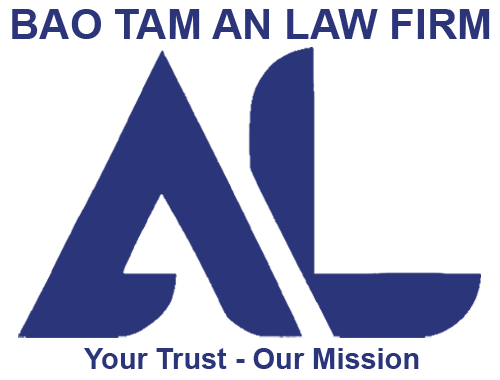Compliance Strategies for Hiring and Managing Foreign Workers in Vietnam
As Vietnam continues to grow as a prominent player in the global economy, the influx of foreign workers has become increasingly significant. Companies looking to hire expatriates must navigate a complex legal landscape governed by various labor laws, regulations, and compliance requirements. Ensuring compliance when hiring and managing foreign workers is essential for mitigating risks, avoiding legal issues, and fostering a productive workforce. This article explores effective compliance strategies for hiring and managing foreign workers in Vietnam, highlighting important considerations and best practices.
Understanding Regulatory Frameworks
Understanding the local laws and regulations surrounding foreign employment is critical for companies operating in Vietnam. The core legal frameworks include:
- Labor Code: The Labor Code of Vietnam outlines the rights and responsibilities of both employers and employees, including provisions regarding working conditions, contracts, and employee rights.
- Law on Enterprises: This law governs business operations in Vietnam and includes regulations on the employment of foreign employees.
- Law on Investment: FDI regulations related to the employment of foreign workers often fall under this law, which governs investment activities in Vietnam.
- Circulars and Decrees: The government issues various circulars and decrees that provide detailed guidance on the implementation of labor laws. These documents cover specific provisions related to work permits, labor contracts, and compliance requirements.

Compliance Strategies for Hiring Foreign Workers
1. Work Permit Requirements
One of the most critical aspects of hiring foreign workers in Vietnam is ensuring that they possess a valid work permit. The work permit is a legal document that allows foreign nationals to work in Vietnam for a specified employer and duration. Employers should:
- Determine Eligibility: Ensure that the foreign worker meets eligibility criteria, which typically include education, professional qualifications, and relevant experience for the position.
- Obtain the Necessary Documentation: Gather required documents for the work permit application, including a valid passport, health certificate, criminal background check, and proof of educational qualifications.
- Apply in a Timely Manner: Submit the work permit application to the local Department of Labor, Invalids and Social Affairs (DOLISA) at least 15 days before the employee starts working to avoid legal complications.
2. Employment Contracts
Drafting compliant employment contracts for foreign workers is crucial for ensuring that both parties’ rights and obligations are clearly defined. Key considerations include:
- Contract Terms: Incorporate essential contract terms, including job description, salary, benefits, working hours, and termination conditions.
- Adherence to Local Laws: Ensure that the employment contract complies with Vietnamese labor laws and reflects legal protections for the foreign worker.
- Language: Provide the contract in both Vietnamese and English (or the worker’s primary language) to facilitate understanding and reduce the potential for disputes.

3. Regular Training and Orientation
To effectively manage foreign workers and ensure compliance, companies should implement training and orientation programs that address:
- Cultural Sensitivity: Foster an understanding of Vietnamese workplace culture, customs, and ethics to help foreign workers integrate seamlessly into the local environment.
- Legal Obligations: Provide training on employees’ rights and responsibilities, local labor laws, and company policies to ensure that foreign workers are aware of their legal protections.
- Work Permit Compliance: Educate foreign workers about the importance of maintaining valid work permits and complying with visa requirements.
Managing Foreign Workers: Compliance Considerations
1. Social Insurance Registration
In Vietnam, employers are required to register foreign workers for social insurance, which includes health insurance, unemployment insurance, and pension contributions. Companies should:
- Understand Obligations: Familiarize themselves with the specific social insurance requirements for foreign employees and ensure timely registration with the local social insurance office.
- Payroll Management: Ensure that payroll calculations account for social insurance contributions, complying with local regulations and protecting the rights of foreign workers.
2. Compliance Consulting for Foreigner Workers
Engaging compliance consultants with expertise in Vietnamese labor laws and regulations can provide significant benefits when managing foreign workers:
- Regulatory Guidance: Consultants can help navigate the complexities of Vietnamese labor laws, ensuring that hiring practices comply with all regulatory requirements.
- Documentation Support: Consulting services can assist in preparing necessary documentation for work permits, employment contracts, and social insurance registration.
- Risk Assessment: Consultants can conduct risk assessments to identify potential compliance issues and provide strategies to mitigate those risks.

3. Dispute Resolution Mechanisms
Developing effective dispute resolution mechanisms is essential for addressing potential conflicts between employers and foreign workers. Companies can:
- Establish Clear Policies: Implement clear workplace policies outlining procedures for reporting grievances and managing disputes, including confidentiality measures to protect employees.
- Training for Management: Equip management personnel with conflict resolution training to handle disputes sensitively and fairly.
- Engage Third-Party Mediators: In the event of a significant dispute, consider involving third-party mediators to facilitate an amicable resolution and maintain healthy workplace relationships.
Regular Compliance Audits
Conducting regular compliance audits is vital for ensuring that your organization adheres to local laws and regulations concerning foreign workers. Employers should:
- Assess Policies and Practices: Regularly review hiring practices, employment contracts, and training programs to ensure compliance with local regulations and labor laws.
- Document Findings: Keep detailed records of compliance audits and findings to identify areas for improvement and mitigate potential risks associated with labor disputes.
- Implement Changes: Actively implement changes based on audit findings to ensure ongoing compliance with updated laws and regulations.
Conclusion
Successfully hiring and managing foreign workers in Vietnam requires careful navigation of regulatory frameworks and compliance considerations. By implementing effective compliance strategies, employers can protect their interests and create a welcoming environment for expatriates. Understanding work permit requirements, drafting clear employment contracts, investing in training, and engaging compliance consultants are all essential steps toward mitigating risks associated with foreign employment. With the right strategies in place, companies can foster a diverse and productive workforce that embraces the unique talents and perspectives of international employees.
